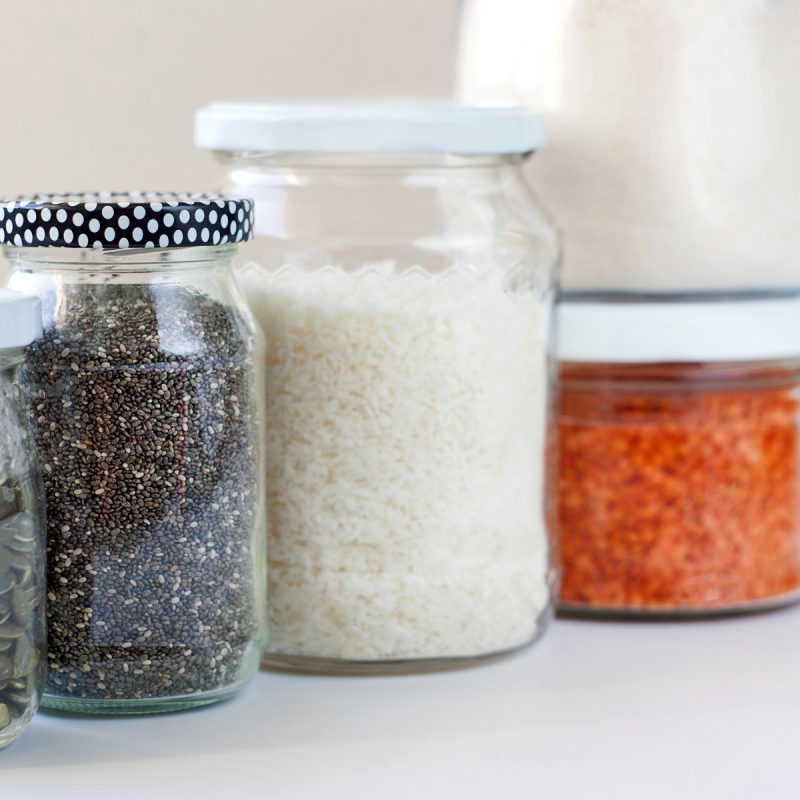You’ve heard the term Zero Waste before, but is it really an achievable goal? The Zero Waste movement was officially kicked off by Warren Snow at the 2000 Zero Waste Conference in New Zealand. It was the first movement of its kind, although it had been brewing for some time before that. This approach strives to eliminate all waste from our daily lives. That includes packaging for food, clothing, cosmetics, toys, home decor, and other consumables, since this packaging is typically made from non-biodegradable plastics or other non-sustainable, polluting material.
The Zero Waste International Alliance uses the internationally peer-reviewed Zero Waste definition: “Minimum 90% diversion of wasted materials from landfills and incinerators.” This has generated the phrase “Zero Waste or Darn Close To It!” There are degrees of “zero waste” that also aim to achieve a smaller carbon footprint, but the ultimate goal is to keep your garbage can empty and your compost bin full. The less packaging, the better.
At a time when we Americans toss some 262.4 million tons of solid waste per year, and send 67.8 million tons of recycling to companies that may or may not fully recycle these materials, the Zero Waste movement couldn’t be more timely. We risk filling our landfills within 18 years and letting harmful chemicals like BPA and phthalates leach into the Earth. For containers that we may use once (for a ten minute meal), the fact that they last for perpetuity is certainly unsettling, if not downright maddening. The good news is that 23.4 million tons are being composted, and people are ready to change.
So how do you make the switch to less packaging or none at all? There are numerous doable ways to approach the Zero Waste movement.
What Can We Do, Starting Tomorrow?
1.Rethink Packaging
It may require a small initial investment, but since you’ll be buying unpackaged goods that generate no waste, you’ll need to package them at home to keep them fresh. For dry goods like flour, grains, and other staples, you can use glass canisters to keep them fresh. When you purchase them from a store, be aware that the store may require you to use their reusable containers. Refrigerated items like vegetables can be carried in a reusable sack and either wrapped in a wax cloth or mesh bags. See more options here. Cosmetics like shampoo can also be stored in glass (or BPA-free plastic since they’re in the shower).
2. Be Patient with the Process
Our society is built around plastic packaging. Once you start to realize this, you’ll see it everywhere. So don’t get discouraged if you can’t go from 60 to zero in ten seconds! Start by easing into it with products that are easy to purchase without packaging. Every little bit makes a big difference!
If you watch the Plastic Paradise documentary, you’ll be even more motivated to rid the world of plastic. It never goes away. Midway Atoll, in the middle of the Pacific, has been collecting plastics since the 1950s, and many still look as good as they did the day they were made. Action figures, fishing nets, and other bits of bright plastic wash up on a beach that collects plastic that we’ve “recycled,” due to its location in the ocean. When you run your hands through the sand, you get more plastic than shells.
3. Encourage Others to Follow Your Lead
With small changes, anyone can master the Zero Waste movement. As you get more involved, you’ll want to deal with plastic packaging less and less, and you’ll find sustainable sources more easily. You’ll also find zero waste products that you prefer.
4. Want Not, Waste Not
Try not to buy as much, period. Where you can, make something. Grow some food. Make your soap. Replace paper towels with cloth. Make your children’s toys – or better yet, send them outside for some fresh air and creative play. Maybe consider each purchase twice. We live in a consumer-driven economy and are bombarded by messages that we need certain products or services to help us better this or change that. But do we? Take a moment and check if it’s a need or want that you’re fulfilling.
We’ve only been producing plastic for about 112 years, yet it’s already affected our planet forever. Let’s turn this tide away from Midway. Together, we can tread a little lighter on the Earth and keep it beautiful for generations to come.

